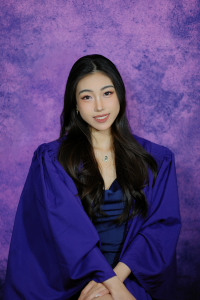 As a junior attending high school in Long Island by way of Guangzhou, China, Nicole Yu ’25 decided that psychology was her calling. Her sights were set on counseling or pre-med as her future path. So, she was quick to choose it as a major when she enrolled at New York University. As a junior attending high school in Long Island by way of Guangzhou, China, Nicole Yu ’25 decided that psychology was her calling. Her sights were set on counseling or pre-med as her future path. So, she was quick to choose it as a major when she enrolled at New York University.
To broaden her experience, she also chose two minors: media communication and culture (MCC) and child and adolescent mental health studies. While MCC offered an introduction to marketing and helped her discover how much she enjoyed content creation, it didn’t provide the depth she craved to fully explore the field. “That’s why I chose the MS in Communication (MSC) program,” says Yu. “I wanted to change my whole career path. It would give me the chance todive deeper into the field and gain the specialized expertise I was looking for.” She applied to eight graduate programs, all related in some way to marketing, communication, media, or analytics, but she knew Northwestern would be her top choice. The program was flexible and customizable to her interests, and the campus was beautiful and tranquil—just the change she was looking for after several hectic years in New York. 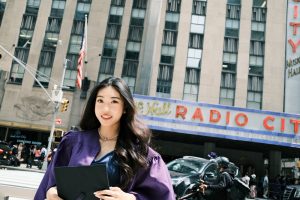
“I have several friends from the program who are interested in public relations, and they’re taking completely different classes than I am right now,” she explains. “We can all study exactly what we want.” In Foundations of Strategic Communication, taught by Professor Erik Nisbet, she couldn’t believe how much she learned in such a short amount of time, from understanding how to craft messages for specific audiences to mastering the use of communication channels. In Brand Management, taught by Professor TJ Billard, she got her first hands-on experience with developing brand strategies, building brand equity, analyzing consumer insights, and evaluating the effectiveness of branding campaigns. Along the way, she says the Office of External Programs, Internships, and Career Services (EPICS) has been invaluable, helping her do everything from update her résumé to apply for internships. “Career Advisor Scott Adkins has been so helpful. I wasn’t sure what types of jobs I was looking for. I just knew I wanted to pursue something in marketing, but I was lost,” says Yu. “He spent an hour talking to me and then summarized what he thought and suggested several paths for me to explore.” Her current role at Autism Care Therapy, where she works as a registered behavior therapist for children on the spectrum, is the result of what began as a marketing internship she discovered through EPICS. In addition to her therapy work, she also does marketing for the clinic’s partner organization. She creates content, works on media planning, and analyzes social media performance. The role is giving her the chance to do something she wasn’t sure was possible: merging her love of psychology and marketing. Staying connected to campus events has also been helpful for Yu as she explores what’s next. She’s had the opportunity to participate in workshops, networking sessions, and Dialogues with the Dean on topics like building a personal brand and hearing from prominent guest speakers like actress Sarah Jessica Parker on navigating the media and entertainment industry. To broaden her professional network, Yu is also part of the E-Commerce Sales and Marketing Career Community, which gives her the opportunity to explore her career options. Hosted once per quarter by MSC alumni, the sessions cover topics relevant to the rapidly evolving digital marketplace. This experience is another way she says Northwestern is helping her prepare for her future. She enjoys the hybrid role she’s in now—part behavioral therapist, part marketing expert—and plans to continue down that path, finding fulfillment in combining her interests. “For me, it’s the best of both worlds,” Yu says. “And everything I’m learning right now in the MSC program applies to what I’m doing for the families I work with and the marketing initiatives I support.” |
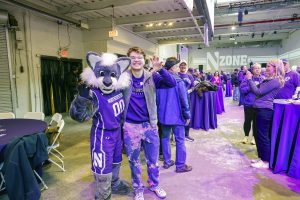 Raised by former English majors—an English professor and a technical writer—Max Herteen ’27 knew he was destined to study English as an undergraduate, too.
Raised by former English majors—an English professor and a technical writer—Max Herteen ’27 knew he was destined to study English as an undergraduate, too.
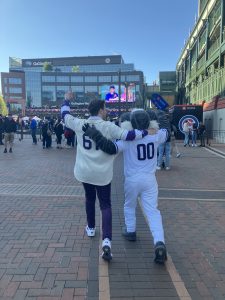
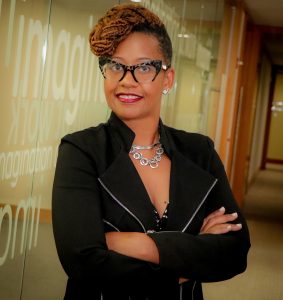 As a child, Teshera Hull ’19 remembers tagging along with her mother to the local community college, but her mother never had the opportunity to complete an associate’s degree.
As a child, Teshera Hull ’19 remembers tagging along with her mother to the local community college, but her mother never had the opportunity to complete an associate’s degree.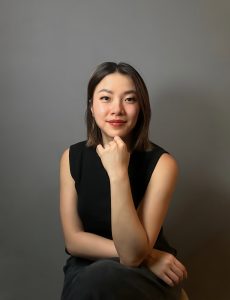 At age 15, Charlene Yang ’22 moved halfway around the world to soak up new culture and learn English. Growing up in Taiwan, she journeyed to Kentucky before settling in Seattle to finish high school prior to attending UC Irvine.
At age 15, Charlene Yang ’22 moved halfway around the world to soak up new culture and learn English. Growing up in Taiwan, she journeyed to Kentucky before settling in Seattle to finish high school prior to attending UC Irvine.

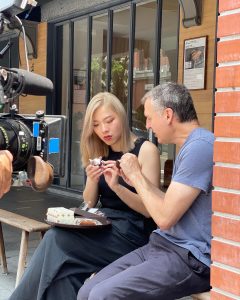
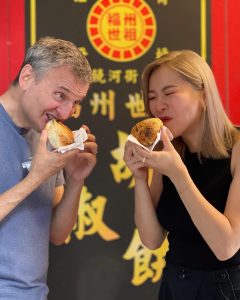
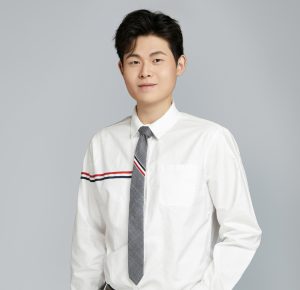 Coming from a large family of business owners and entrepreneurs, Jiaxin Tong ’23 was the first to show an interest in the performing arts. As a child, he often imagined stepping into the performances he enjoyed so much, or befriending the characters he knew from the screen.
Coming from a large family of business owners and entrepreneurs, Jiaxin Tong ’23 was the first to show an interest in the performing arts. As a child, he often imagined stepping into the performances he enjoyed so much, or befriending the characters he knew from the screen.


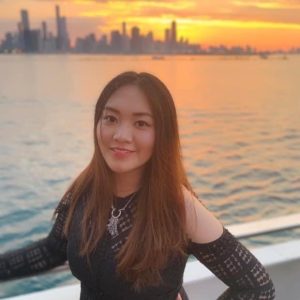 Lu Bai ’12 first experienced life in the United States during an exchange program that took her from Beijing’s Peking University to Atlanta during her sophomore year of college. That journey helped her understand how different countries approach education.
Lu Bai ’12 first experienced life in the United States during an exchange program that took her from Beijing’s Peking University to Atlanta during her sophomore year of college. That journey helped her understand how different countries approach education.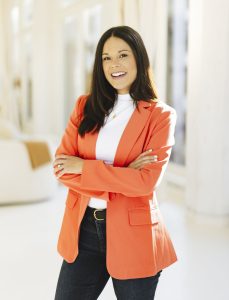 For Jenna Rogers ’19, the decision to study communication as an undergraduate was an obvious one. After studying speech communication at the University of Arizona, her father had gone on to own a small business for more than three decades. She was inspired to follow a similar path as she realized how much he enjoyed his work.
For Jenna Rogers ’19, the decision to study communication as an undergraduate was an obvious one. After studying speech communication at the University of Arizona, her father had gone on to own a small business for more than three decades. She was inspired to follow a similar path as she realized how much he enjoyed his work.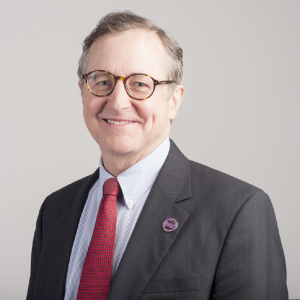 Bob Rowley is often introduced as “This is Bob Rowley, who spent a life in communication.” Bob Rowley is the Northwestern Assistant Vice President of Media Relations and a Medill School of Journalism lecturer. He spent 30 years working for the Chicago Tribune, was a White House correspondent, Pentagon correspondent, national correspondent based in Dallas, lived in Mexico covering Latin America, where his daughters were born, and in Toronto and Jerusalem, going back and forth covering a dozen wars and different kinds of stories. He has worked in higher education for about eight years, first at Elmhurst College and now Northwestern University. After graduating from the Northwestern MSC program at age 59 in 2013, he became the first president of the MSC Alumni Association.
Bob Rowley is often introduced as “This is Bob Rowley, who spent a life in communication.” Bob Rowley is the Northwestern Assistant Vice President of Media Relations and a Medill School of Journalism lecturer. He spent 30 years working for the Chicago Tribune, was a White House correspondent, Pentagon correspondent, national correspondent based in Dallas, lived in Mexico covering Latin America, where his daughters were born, and in Toronto and Jerusalem, going back and forth covering a dozen wars and different kinds of stories. He has worked in higher education for about eight years, first at Elmhurst College and now Northwestern University. After graduating from the Northwestern MSC program at age 59 in 2013, he became the first president of the MSC Alumni Association.